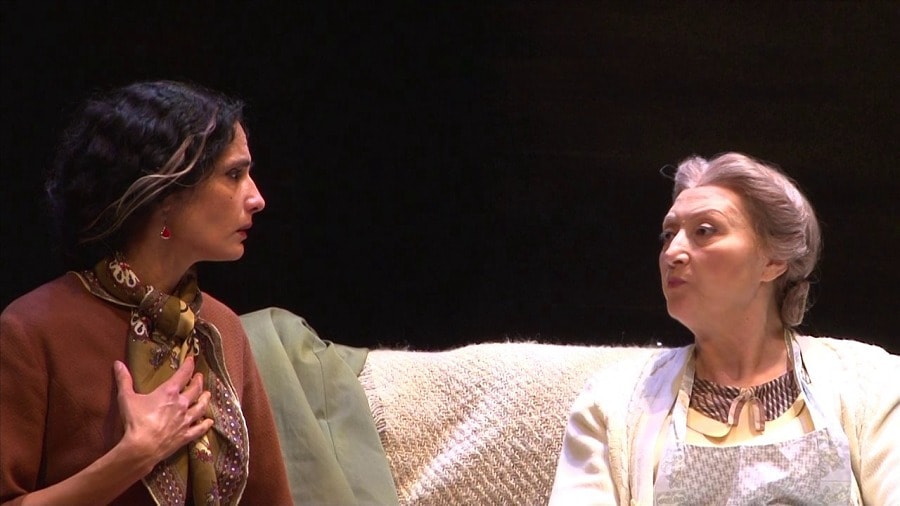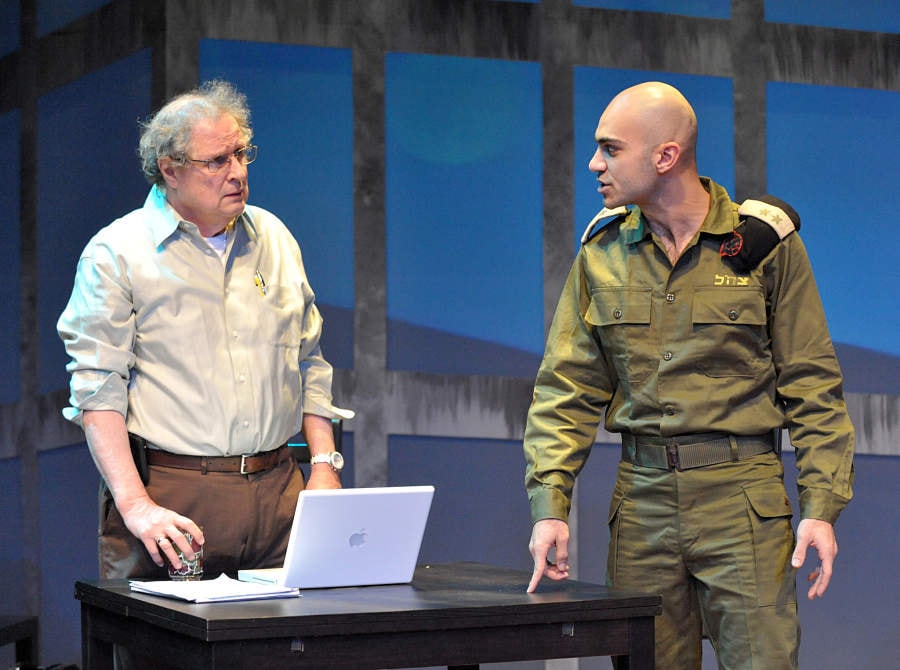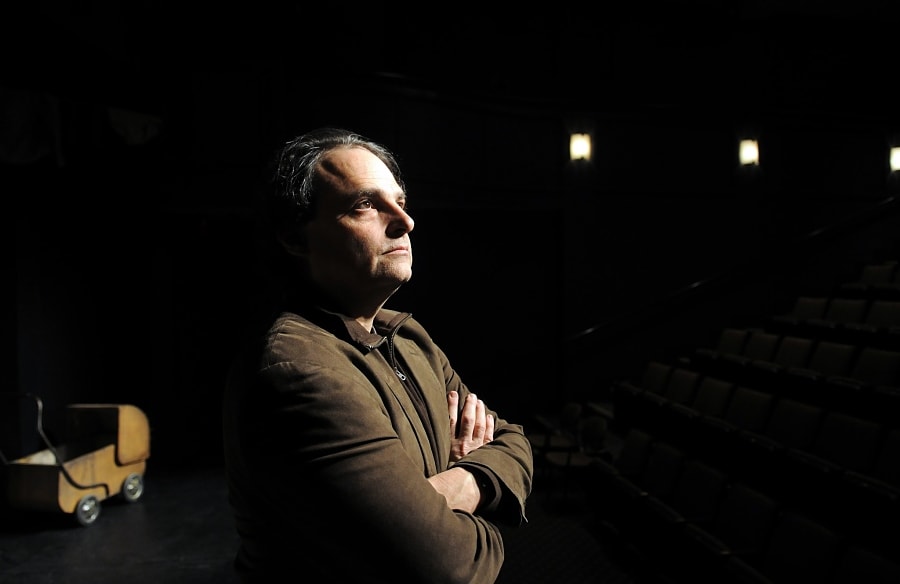But of all of Theater J’s Middle East productions, the one most prone to headlines was imported last year directly from its run at the Cameri Theatre in Tel Aviv (essentially the Lincoln Center of Israel). Return to Haifa, adapted by Israeli playwright Boaz Gaon from a novella by Palestinian author Ghassan Kanafani, has a story that goes straight to the heart of the Israeli/Palestinian conflict: A Palestinian couple is forced to leave Haifa following Israel’s War of Independence in 1948, and theJewish couple—both Holocaust survivors—that moves in finds a baby boy left behind. They raise him as their own and, 19 years later, he’s serving in the Israeli army and fighting in the Six Day War of 1967. When the Palestinian parents are finally allowed to return to Haifa, they reencounter their son and reveal his identity for the first time.
What first moved Gaon about the story was the sensitivity that Kanafani displayed toward Jewish characters, particularly Holocaust survivors. Gaon returned the favor, displaying a similar empathy for the Palestinian characters in his adaptation. But the result, as Gaon told critic Peter Marks of the Washington Post, is that a number of prominent American theatres found the play too risky, turning down the chance to produce it.

Theater J, however, was on board. For the American premiere, Roth commissioned an Arabic translation for the conversations between the Palestinian couple, and the show was presented in Arabic and Hebrew with English surtitles. Roth hoped that Arabs and Jews alike would see it, since the play portrayed both Palestinian and Israeli perspectives and the cast included both Arab and Jewish actors. Roth also decided to have a talkback after every performance to encourage dialogue.
Return to Haifa “played like a hit,” Roth recalls. The talkbacks in particular were a draw: Each featured a different panel of scholars, artists and advocates—44 panelists in all. One night, it was Hadar Susskind, a vice president at J Street (a progressive Israel-advocacy organization), and Jamal Najjab, a director at the United Palestinian Appeal; another night featured Rabbi Charles M. Feinberg of Rabbis for Human Rights; on another, Aziz Fahmy Farag, bureau chief and senior correspondent for Saudi TV. These discussions sparked spirited and at times vociferous debates. Roth was thrilled with the response: “Every talkback was good. Some nights, it was sublime.” In his view, the more diverse the audience, the better the conversation.
But the play, almost inevitably, drew protests. In this case, a group calling itself COPMA (Citizens Opposed to Propaganda Masquerading as Art) decried the play as anti-Israel and called upon a major funder to cut off Theater J. This group also took issue with the Peace Cafe, stating that Theater J collaborates with those who “regularly attack and denigrate Israel.” COPMA had protested outside Theater J during the 2009 reading of Seven Jewish Children, and by now the group’s presence made the board and CEO of the very nervous.
These responses didn’t deter Roth. “I was proud the play was being taken seriously. I’m drawn to plays that touch the third rail.”
But the JCC felt compelled to address some of COPMA’s concerns. The Peace Cafe was detached from Theater J and moved offsite; it is now hosted primarily at Andy Shallal’s nearby venue, Busboys and Poets. And this season, as the JCC brought in a new CEO, Carole Zawatsky, Theater J held off announcing its new “Voices” series. When it did, though, it showed no signs of softening. Its opening offering was a new work by Gaon, co-written with Nir Erez: an incendiary adaptation of Henrik Ibsen’s An Enemy of the People, retitled Boged (which means “traitor”). Though it’s not about the Arab/Israeli conflict, its dark portrayal of Israel’s dealings with corporations highlights another fault line in Israeli society: the conflicts between the socialist ideals of many of its founders and the American-style capitalism that has come to dominate its economy.

This year’s “Voices” series also included Taher Najib’s In Spitting Distance, about growing up in Ramallah, and Yussef EI Guindi’s Such a Beautiful Voice Is Sayeda’s and Karima’s City, both stories of Egyptian women’s struggles against an oppressive patriarchy. The reading of EI Guindi’s play was held on the day of elections in Egypt and was dedicated to Egyptian-American demonstrator and journalist Mona Eltahawy who, Roth says, represents “the older sister of the young demonstrators in Tahrir Square,” referring to the recent protests in Egypt.


